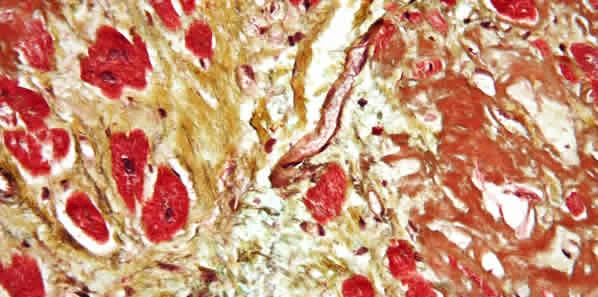According to a systematic review conducted by cardiologists, neuroscientists and psychiatrists from Icahn School of Medicine at Mount Sinai, future prevention and treatment strategies for vascular diseases may lie in the early evaluation of brain imaging tests. The review has been published in JACC Cardiovascular Imaging.
The researchers examined relevant brain imaging studies that have been conducted over the last 33 years. The studies that were evaluated included those that had used every available brain imaging modality in patients with vascular disease risk factors but who had not demonstrated symptoms that could lead to a diagnosis of vascular disease in the heart, brain or periphery.
The researchers found that patients with high blood pressure, diabetes, obesity, high cholesterol, smoking or metabolic syndrome but no symptoms of vascular disease, still showed signs of structural and functional brain changes in their neuroimaging scans.
According to Joseph I. Friedman, MD, Associate Professor in the Departments of Psychiatry and Neuroscience at Icahn School of Medicine at Mount Sinai, “This is the first time we have been able to disentangle the brain effects of vascular disease risk factors from the brain effects of cardiovascular and cerebrovascular disease and/or events after they develop. Moreover, subtle cognitive impairment is an important clinical manifestation of these vascular disease risk factor-related brain imaging changes in these otherwise healthy persons.”
The researchers identified the impact of key vascular factors on the structural and functional brain health of asymptomatic patients and revealed that the risk factors are associated with appreciable brain volume reductions, connecting brain fibre abnormalities, reduced brain blood flow, alterations in the normal pattern of synchronized brain activity and reduced brain metabolism.
Early identification of brain changes presents a new window of opportunity and can enable doctors to intervene early and prevent the advancement of vascular disease risk factors to established cardiovascular and cerebrovascular diseases. If patients are able to control their vascular risk factors early, they can prevent negative consequences on their overall health and can even prevent cognitive decline and risk of diseases like dementia or Alzheimer’s.
Brain changes are major warning signs in high risk patients and if detected early, doctors can use these signs to modify the patient's daily vascular risk factors and prevent the development of cardiovascular diseases. Interpretation of early neuroimaging data of patients who may be at high risk for vascular disease can also play a significant role in the global prevention efforts of cardiovascular diseases.
Source: Newswise
Image Credit: Wikimedia Commons










